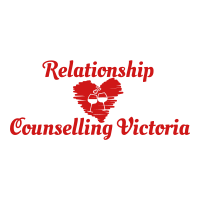
In my individual counselling practice I seek to connect with my clients by listening with respect and empathy, but without judgement. It is important that I understand and value your experience. Through gentle questioning I gain an understanding how external circumstances and stresses affect each you. Equally, collaboratively we explore how past events and possible traumatic experiences have shaped who you are. Finally, we work out how these current and past events affect how you feel, think and what actions you take to respond to challenging situation.
Once we both understand what the problem is, we set a goal about what to do or change. The goal setting process may also include a decision about what can be changed and what needs to be accepted. In order to create change I draw on a range of individual counselling approaches. Primarily, these include evidence-based psychotherapies including Emotion Focused Individual Therapy (EFIT), Cognitive-Behavioural Therapy (CBT) and Acceptance and Commitment Therapy (ACT). Additionally, I draw upon mindfulness techniques, based upon Buddhist traditions.
Individual Counselling can be challenging at times, taking you out of your comfort zone. But you will be in control of the process and determine how much and how fast you want to enter unknown territory. Most clients require a number of session to reach their goals and overcome their presenting problem.
I provide individual counselling and psychotherapy for a number of problems:
- Individual counselling for relationship problems
- Anger management
- Grief Counselling
- Trauma
- Self-esteem / Shame issues
- Men’s issues
Individual counselling for relationship problems
Often individuals want to talk to a counsellor about relationship problems they experience. For example, the question whether to stay or to leave? Alternatively, one partner realizes that their behaviour or habits cause the other one a lot of pain. Therefore they want to get help to change these behaviours and habits.
Anger management
People usually come to anger management when their anger causes emotional or even physical hurt to those that they love. Getting help is the first step to taking responsibility for one’s own behaviour, rather than blaming others, such as saying “You make me angry.”
Anger management involves a number to steps, such as recognizing the benefits and cost of anger. Once recognized, training starts by noticing the warning signs and identifying triggers.
It then proceeds to learning to tolerate uncomfortable feelings without taking harmful action. This is coupled with techniques such as mindfulness, acceptance and commitment therapy (ACT) and compassion training. Additionally, understanding one’s own personal history and upbringing provides further insight into one’s own mind. This results in making different decisions in situations that previously triggered bouts of anger and aggression.
Grief Counselling
“To spare oneself from grief at all cost can be achieved only at the price of total detachment, which excludes the ability to experience happiness.” Erich Fromm
While most people cope relatively well after the loss of a loved one, about 20% of mourners struggle to come to terms with his or her absence. Most people experiences a range of painful emotions, such as sadness, shock, loneliness, yearning for the deceased, numbness, relief, anxiety, anger, or guilt. Again, for most people this is a transitory phase and they are able to get on with life. But for some people there is prolonged and overwhelming grief.
This is where grief counselling can help to learn to work through the painful emotions. Often past traumas, previous losses and a sense of responsibility need to be addressed as part of this process. This then helps to slowly adjust to a world without the deceased, while maintaining an emotional bond. Ultimately, it is important to develop a new sense of purpose, that includes the memory of the deceased, but not exclusively.

